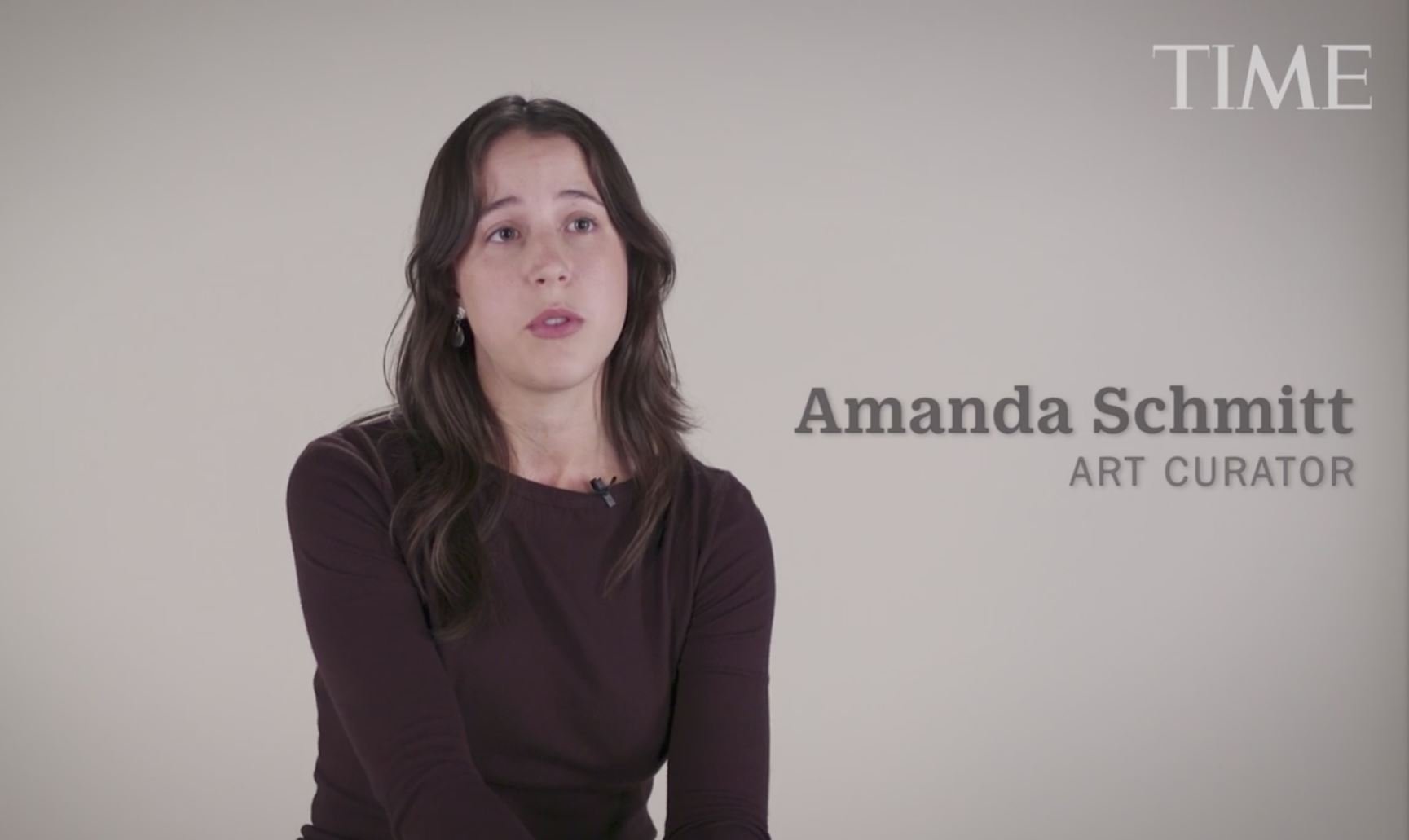
Last month, Artforum and its former co-publisher Knight Landesman filed motions to dismiss the lawsuit brought against them by Amanda Schmitt, a former employee who accused Landesman of sexual harassment and is currently suing him and the magazine for defamation and retaliation. Today, Schmitt’s attorneys filed rebuttals to those motions. If a judge agrees with Schmitt, her high-profile lawsuit—which has gripped the art world and toppled one of its most recognizable figures—will move ahead to trial.
The new briefs point out that some two-dozen women have come forward with allegations against Landesman in recent months. Yet “despite this public reckoning, Artforum once again shamelessly joins forces with Landesman seeking to have Schmitt’s claims dismissed,” her lawyers write.
In her initial complaint, Schmitt alleged that Landesman’s unwanted touching and sexual comments began while she was working at Artforum and continued for years after she left the magazine in 2012. In June 2016, she says she approached two of Artforum‘s other co-publishers with her concerns about Landesman, showing them inappropriate text messages he had sent her and offering to provide accounts from other women as well. They claimed to be deeply disturbed by the allegations (though one said he’d heard such rumors before, according to the complaint) and promised to investigate. They eventually required Landesman to seek therapy, but he remained in his position and continued sending messages to Schmitt, she alleges.
On October 24, 2017, Artforum‘s publishers told artnet News that Schmitt’s allegations were “unfounded” and an “attempt to exploit a relationship that she herself worked hard to create and maintain.” The next day, Schmitt filed her lawsuit and the publishers had a change of heart, saying that they now had reason to believe that Landesman had “engaged in unacceptable behavior and caused a hostile work environment.” He resigned as publisher that same day, though he remains a partial owner of the magazine.
Schmitt’s attorneys say that the publishers’ statement to artnet News—as well as comments they allegedly made to staff describing Schmitt and Landesman’s relationship as “consensual and non-physical” and her complaints as an attempt to “take down Artforum“—were also defamatory. “Artforum’s publishers knew all these statements were false: they had seen the emails and text messages that Landesman sent to Schmitt, knew there were other victims, had access to Landesman’s Artforum email account, and—as would soon be revealed—their own staff corroborated Schmitt’s claims,” her attorneys write in the brief.
Schmitt has also accused Landesman of retaliating against her when he allegedly approached her last May in a restaurant and told her dining companions that she had “unfairly accused” him of harassment and they should help her “understand the reality.”
Landesman’s attorneys have said that his statements should be considered matters of opinion, not fact, and that the former publisher did nothing to harm her professional standing as a curator and art fair director. But Schmitt’s attorneys say that reputational harm counts as well, and that the exchange was professionally detrimental anyway. “The art industry… is entirely predicated on creating and cultivating professional relationships,” they write, and Landesman “painted Schmitt as a woman who could not be trusted to interact truthfully with men in the art industry, let alone without leveling false charges of sexual harassment against them.”
Artforum has argued that it was not responsible for protecting Schmitt from Landesman’s behavior because she was not an employee at the time of the confrontation. But her attorneys say in the brief that New York City’s Human Rights Law extends to former employees as well, and “Artforum is strictly liable for Landesman’s retaliation because he was a senior executive and shareholder of the magazine.” (Because Schmitt’s employment ended more than five years ago, she has exceeded the statute of limitations to bring a sexual harassment lawsuit; her claims focus instead on retaliation and defamation.)
Artforum and Landesman are separate defendants in the case, though they have made several similar arguments. For one, they both aim to strike the accounts of harassment from eight other women in Schmitt’s complaint, which Landesman’s attorney calls “irrelevant, scandalous, and unfairly prejudicial.” But Schmitt’s lawyers say these claims matter because they show that Artforum knew about Landesman’s behavior—or could have known, had it investigated Schmitt’s claims.
In December, Schmitt was named one of TIME magazine’s People of the Year, which honored women who spoke up about sexual harassment in the workplace.
Lawyers for Landesman and Artforum did not immediately respond to a request for comment about the latest filing.